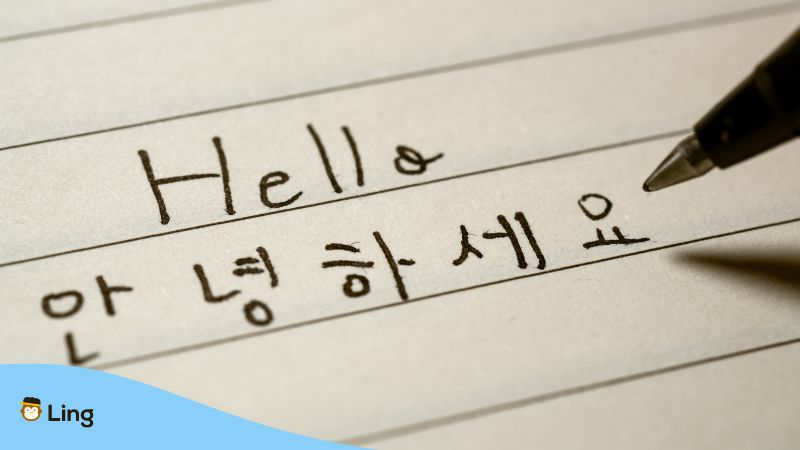The Korean language may seem easy to master because of the Korean dramas you’ll find online. But did you know it takes 2200 hours to master it or 88 weeks to reach hundred percent fluency? This may come off as a shock for most, but you might get the hang of it by learning short Korean phrases!
In the bustling streets of Seoul, where tradition intertwines with modernity, lies a treasure trove of linguistic gems waiting to be discovered. Like delicate brushstrokes on a canvas, short Korean phrases paint vivid portraits of emotion, culture, and the essence of human connection. These concise expressions encapsulate a world of meaning in a mere breath, leaving a lasting impression.
If you’ll ask me, these short phrases are like fragments of poetry. They hold the power to capture the essence of moments and relationships. They are the threads that bind the Korean culture, inviting us to embark on a journey of understanding, connection, and appreciation.
So, are you planning to visit Korea anytime soon? It’s never too early or late to learn a few essential words in their language, so come on and start studying Korean phrases today!
Basic Honorifics In The Korean Culture
Before venturing into the sea of short Korean phrases, you have to learn these basic honorifics that can help during your stay in South Korea. These honorifics may not have a direct translation in the English language, but they’re easy to remember and understand as they’re pretty short and straightforward! You can add them at the end of the title o name of whom you’re speaking with so you’ll come off as respectful.
| Hanggeul | Roman | Use |
| -씨 | -ssi | Used to politely address someone. It can be used in a business setting. |
| -님 | -nim | Used to show more respect in a business setting. It’s added at the end of a person’s title. |
| -장 | -jang | Used to address someone with a high position or rank. |
| -군 | -gun | It’s similar to -씨, but it’s specifically used to address young and unmarried males. |
| -양 | -yang | It’s similar to -씨, but it’s specifically used to address young and unmarried females. |

10 Short Korean Phrases To Learn Today
Unlocking the intricacies of the Korean language begins with mastering a handful of key short phrases. So in this section, we rounded up the top expressions that’ll help lay the foundation for comprehending the more complex aspects of the language.
1. 네 (Ne)/ 아니요 (Aniyo)
Upon learning short Korean phrases, you may have come across these two words. You may often hear them in dramas as the main character agree or disagree on certain things. Well, if you haven’t, then you better watch more Korean dramas! These short Korean phrases translate to “Yes” and “No.” They’re short, but they can shut down anyone you’re speaking with!
2. 안녕하세요 (Annyeonghaseyo)
This word means “Hello” in English translation, but you may also use it as a greeting at any time of the day. It also makes a good substitute for “Good morning” in the English language. Additionally, you can use it to connect with native Korean speakers as they also utilize it in their everyday life. It comes in several forms; in which 안녕하세요 is one of the formal versions of greeting someone older in South Korea. You can also use 안녕 (Annyeong) in casual conversations with friends or people of the same age.

3. 미안합니다 (Mianhamnida)
People who speak English may have used “Sorry” a dozen times a day. It is also frequently used in the Korean language. Saying simple words and phrases of apology comes with great weight and value in any foreign language. If you want to extend your apologies formally, then you should use 미안합니다 (Mianhamnida). There are plenty of ways to say it. Remember that the particles you add and eliminate may help determine how formal your expressions are.
4. 감사합니다 (Kamsahamnida)/고마워요 (Gomawoyo)
One of the most common Korean words includes “Thank you.” Upon studying their language with your favorite Korean drama, you’ve probably figured out that one of the ways to say is either 감사합니다 (Kamsahamnida) or 고마워요 (Gomowo). These two essential phrases are both used to show gratitude. The first one is best used in formal situations, while the other is suited when speaking with your Korean friends.

5. 잘 가요 (Jal Gayo)
Native speakers find 잘 가요 (Jal Gayo) a meaningful phrase as it shows your sincerity and goodwill when bidding people farewell. This basic Korean phrase encompasses the emotions of both sadness and well-wishing as you part ways. When saying it, there is a sense of warmth and genuine care. Its English translation means goodbye— but unlike any other greetings, it’s packed with a heartfelt farewell for a positive journey ahead and the hope for a future reunion.

6. 사랑해요 (Saranghaeyo)
Do you want to express your love and care for someone through a simple Korean word? 사랑해요 is one of the most common relationship phrases that lovers use. It’s a universally cherished phrase that holds immense power and emotion. When spoken sincerely, it can ignite warmth in the heart, convey affection, and deepen connections. From expressing love for family and friends to romantic partners, “I love you,” or 사랑해요 encapsulates the beauty of love in its purest form.
7. 화이팅 (Hwaiting)
Cheering on your peers is one of the best things you can do for them. If you’re in search of a word that says, “You can do it!” then using 화이팅 is worth the shot. It’s derived from the English word “fighting.” Saying it often needs a good amount of energy to boost someone’s morale effectively. This is one of the essential Korean words that resonate with the Korean spirit of resilience and optimism, reminding individuals that they have the inner strength to overcome obstacles and achieve success.
8. 맛있어요 (Masisseoyo)
It’s hard not to say a word when devouring a great-tasting dish. You can’t just keep your mum and not give a compliment to the chef. If you want to say, “It’s delicious in Korean, then 맛있어요 conveys the joy and satisfaction experienced through food. It’s an expression that acknowledges the pleasure of good flavors.
9. 안녕히 계세요 (Annyeonghi Gyeseyo)
When bidding farewell to someone who will remain in a place, “안녕히 계세요” carries a sense of well-wishing and goodwill. It extends beyond a simple goodbye, encapsulating the wish for the person’s safety, peace, and happiness while they continue their journey. The phrase evokes a sense of heartfelt care and leaves a lasting impression of warmth and consideration.
10. 잠시만요 (Jamsimanyo)
Have you ever gotten stuck in a sea of people on the subway? It sure is annoying to get sandwiched by people, so one way to say “Excuse me” politely is by verbalizing 잠시만요 (Jamsimanyo). Simple Korean phrases like this are commonly used in public as it can get pretty hectic out there. But did you know it also means “just a moment” in their native language? It’s a good way to buy time while maintaining a well-mannered demeanor.
Want To Learn Basic Korean? Try Ling Now!
Embarking on a journey to learn short Korean phrases is an exhilarating adventure that unveils a treasure trove of culture, communication, and meaningful connections. However, what we covered above may still not be enough to help you navigate your way through tricky conversations with native speakers. Our advice? Try Ling!
With the Ling app, your path to speaking Korean becomes smoother. Step by step, you’ll learn the art of reading Hangeul and eventually find yourself confidently uttering everyday phrases. By using the app for 10 minutes a day, you’ll get to embrace a fresh and engaging approach to language learning through its interactive and enjoyable lessons across 60+ languages. The time for hesitation is over—ignite your journey of discovering new native languages today! Download the Ling app now on Play Store and App Store for FREE.



































































